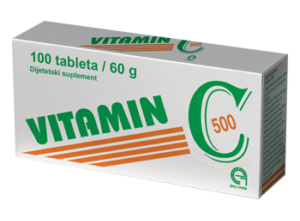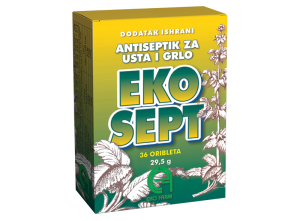Upper respiratory tract infections (URTI) are the most common acute infectious illnesses in the general population, which primarily affect the major structures of the upper respiratory tract, including nose, sinus cavities, throat (pharynx) and voice box (larynx). They are one of the main reasons why we visit our doctor, miss our work and keep our children out of nurseries and schools. URTI may occur during the whole year, however, there is an increased incidence during autumn and winter months, due to various environmental and social factors. They are typically caused by viruses and repeated up to 4 times a year in adults and up to 10 times a year in school children. Although most URTI, such as the common cold, rhinitis, pharyngitis, laryngitis and tonsillitis are considered to be mild and self-limiting, they should not be taken for granted, since they can lead to more severe complications, such as bacterial sinusitis, middle ear infection (otitis media) or bronchitis in sensitive population groups (small children, the elderly, chronic and immunocompromised patients).
What are the symptoms of upper respiratory tract infections?
There is a significant overlap in symptoms of URTI, seasonal influenza, infectious mononucleosis and other conditions that require targeted therapy, such as allergic rhinitis, bacterial sinusitis and group A streptococcal pharyngitis. That is why self-diagnosis and self-medication, although very common, are not recommended and should be avoided whenever possible. Consulting with an experienced doctor, on the other hand, is much more advisable. Symptoms of URTI occur rapidly, after just 1-3 days of incubation period and they typically include nasal congestion, runny nose, sneezing, sore throat and cough, often accompanied by a slight muscle ache and a headache. Fever is generally not present, although a low-grade one may occur in some cases. Most of the symptoms usually last from 7 to 10 days in adults, except cough, that can last up to 3 weeks. Infants, young children, older people and chronic patients may experience somewhat prolonged symptoms, due to the lower immune system functions.
What causes upper respiratory tract infections and how are they transmitted?
It is estimated that more than 85% of all URTI are caused by over 200 different types of viruses. The most common ones are the rhinoviruses, followed by adenoviruses, coronaviruses, human parainfluenza viruses, enteroviruses and human respiratory syncytial virus. URTI can also be caused by bacteria (up to 15% of all cases), including Streptococcus pyogenes (most frequent causative agent of streptococcal pharyngitis), Streptococcus pneumoniae, Haemophilus influenzae, Corynebacterium diphtheriae and Bordetella pertussis.
URTI can be transmitted very easily via direct person-to-person contact, by inhaling aerosols of respiratory droplets that contain the virus. Other methods of transmission include touching the contaminated surfaces (hand-to-surface contact) or touching the nose or mouth by hand, which are the two main portals of entry for infectious pathogens into the body. Transmission is very often in nurseries, schools, public transportation, as well as all places that include people sitting in close proximity to one another. It is virtually impossible to avoid the illness after being exposed to an infected person. That is mainly due to the widespreadness, high contagiousness and resilience of the rhinovirus (some serotypes may survive for over 18 hours in the environment, outside the host), as well as other causative agents.
How are the upper respiratory tract infections treated?
Treatment of URTI is typically symptomatic, since there are still no effective antiviral drugs available. Vaccine development also proved to be difficult, due to the large number of rapidly mutating viruses involved as causative agents. Treatment includes over-the-counter (OTC) drugs and various dietary supplements, which alleviate the symptoms, such as nasal congestion, sore throat, hoarseness and cough.
Most commonly used OTC drugs are analgesics (relieve pain caused by muscle ache or a headache), antipyretics (lower the body temperature in febrile patients), nasal decongestants (relieve nasal congestion) and cough medicines (suppress a dry cough, improve chesty cough).
Dietary supplements in the form of oriblettes, pastilles or lozenges, which contain antiseptic and anti-inflammatory substances, such as sage essential oil and bee propolis, are often used for treating sore throat and hoarseness. Vitamin C dietary supplements may shorten the duration of illness, when taken on a regular basis.
Antibiotics, on the other hand, have no effect against viral infections and should not be used for treating common upper respiratory tract infections. Although doctors have been strongly encouraged to decrease the antibiotic usage in the treatment of URTI, unfortunately, they are still frequently prescribed (according to several studies in more than 50% of URTI cases). This represents the world-wide problem, because it leads to the creation of antibiotic-resistant strains of bacteria. In the past twenty years there has been a significant increase in antibiotic resistance rates in the human population. Antibiotics use is, however, justified for treating possible bacterial complications, such as bacterial sinusitis, otitis media, bacterial pneumonia and bacterial pharyngitis caused by Streptococcus pyogenes, also known as the “strep throat”. The condition should be distinguished from a viral pharyngitis, whose symptoms typically improve in 7 to 10 days and does not require antibiotic treatment. Strep throat, on the other hand, should be treated with appropriate antibiotics promptly, in order to prevent the development of rare, but severe complications associated with this illness, such as rheumatic fever or post-streptococcal glomerulonephritis.
Methods of prevention
Even though URTI are highly contagious and widespread diseases, they can be prevented on a certain level by following several important guidelines:
- avoid direct contact with another infected person for at least first 3 days of their illness
- wash hands thoroughly on a regular basis (especially important for children)
- avoid touching the mouth or nose (common portals of entry for the infectious pathogens)
- wear a face mask when being near to the infected person
- wear a face mask if you are infected, to avoid passing the infection to other people
- avoid crowded areas during the autumn and winter months
- do not share drinks or food with other people
- get the optimal amount of sleep
by: mr ph Iva Majstorović, posted on January 6, 2015
References
1. Upper Respiratory Infection (URI or Common Cold)
http://www.cincinnatichildrens.org/health/u/cold/
2. Rohilla, Sharma, Kumar, Sonu. Upper respiratory tract infections: An overview.
http://www.ijcpr.org/Issues/Vol5Issue3/712.pdf
3. Upper Respiratory Tract Infection Clinical Presentation
http://emedicine.medscape.com/article/302460-clinical
4. Michael Rajnik; Robert W Tolan (13 Sep 2013). “Rhinovirus Infection” Medscape Reference.
http://emedicine.medscape.com/article/227820-overview#a0101
5. Strep throat Causes – Diseases and Conditions – Mayo Clinic
http://www.mayoclinic.org/diseases-conditions/strep-throat/basics/causes/con-20022811
6. Guidelines for the Use of Antibiotics in Acute Upper Respiratory Tract Infections
http://www.aafp.org/afp/2006/0915/p956.html
 Vitamin C-500 is a dietary supplement based on vitamin C, which is essential for improving vitality of our body and it’s natural defense mechanisms. Without sufficient amount of this vitamin many physiological functions, such as growth and development, or antioxidant defense, would simply not be possible. It is an essential nutrient, which means that it cannot be synthesized by the body, therefore, it must be provided continuously through a healthy diet and dietary supplements, when necessary.
Vitamin C-500 is a dietary supplement based on vitamin C, which is essential for improving vitality of our body and it’s natural defense mechanisms. Without sufficient amount of this vitamin many physiological functions, such as growth and development, or antioxidant defense, would simply not be possible. It is an essential nutrient, which means that it cannot be synthesized by the body, therefore, it must be provided continuously through a healthy diet and dietary supplements, when necessary.
 Ekosept is a dietary supplement based on sage and peppermint essential oils in the form of refreshingly sour tablets.
Ekosept is a dietary supplement based on sage and peppermint essential oils in the form of refreshingly sour tablets.
Sage essential oil soothes irritation of the mouth, throat and vocal cords. It is obtained from the dried leaves of Salvia officinalis, commonly known as common or garden sage. The name of the plant derives from the Latin word “salvare”, which means to treat, cure, save, and testifies to the long history of its medical use in human population. Carriers of the antimicrobial activity of sage essential oil are α-thujone, camphor, and 1,8-cineole.
